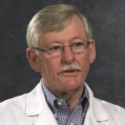As a newly minted gastroenterologist who attended his first ACG meeting more than 40 years ago and who has repeatedly returned to what has been touted as the premier Clinical Meeting in gastroenterology (apologies to Digestive Disease Week [DDW], United European Gastroenterology Week [UEGW], and the Asian Pacific Digestive Week [APDW], all of which are conglomerate meetings produced by multiple professional societies and have a significant basic science agenda), I didn’t know what to expect in a virtual format. Part of the allure of the annual meeting, besides seeing colleagues and friends, has been the absence of 10–12 simultaneous education sessions all competing for the same time slots, usually in disparate sites of a large convention center, or worse, in one of the dozens of off-site “official convention hotels.”
What did I learn from this meeting? First and foremost was that the meeting was more than virtual. Although large portions of it were pre-recorded, there were components of live interviews, ample room for questions and answers by presenters, and an excellent session on each evening of the Scientific Session called, “It’s a Wrap,” in which ACG leaders and faculty summarized the significant findings and takeaways from the day’s key presentation. Perhaps the best live interview of the meeting was between outgoing ACG president, Mark B Pochapin, MD, and Katie Couric, who has been a steadfast supporter of colorectal cancer screening since her husband, Jay, died of metastatic CR malignancy in his 40s. Remember that it was Katie’s live and on-camera colonoscopy viewed by millions of Today Show fans that destigmatized the procedure and has led to saving potentially hundreds of thousands of lives through early diagnosis but also screening exams with the removal of colorectal adenomas. It was fitting that she was given the Emily Couric Award, an annual ACG award given in the name of her sister, a Virginia State Senator who led the state in the support of screening exams for a variety of malignancies before dying herself from pancreatic cancer at the age of 54.
The Scientific sessions presented new clinical research as well as individual topic sessions with expert researchers and clinicians followed by ample time for questions and answers. For instance, here is a single day of topics: Ulcerative Colitis presented by Bincy Abraham, Houston Methodist, and Michael Chiorean, Director of the Inflammatory Bowel Disease COE at Virginia Mason Medical Center; NASH-Clinical Pearls with live Q&A; Seeing the Unseen-Identifying Exocrine Pancreatic Insufficiency in Chronic Pancreatitis; and Updates in Liver Transplantation and HCC for the Busy Gastroenterologist Clinical Pearls with live Q&A.
But perhaps the best part of the scientific program was the Daily Wrap-up in which investigators and clinicians summed up perhaps the most important news and review presentations of each day. For those of us who were attending virtually, there remained constant interruptions: unexpected calls, an ill patient worked into a closed schedule, simultaneous reviews of multiple labs, radiology, and consult reports, and the simple fact that some topics are more relevant or hold more interest to the attendee. Nevertheless, it was in one of these wrap-up sessions that this therapeutic endoscopist learned the term “abdomino-phrenic dyssynergia” for the first time — failure of the diaphragm to elevate during a meal and its relationship to patients’ complaint of bloating. Likewise, I learned that those patients with a bloating complaint have comparable amounts of intestinal gas than those who do not complain of this symptom, but there may be different composition of gases in patients with irritable bowel disease-diarrhea versus irritable bowel disease-constipation. Finally, I learned that individuals who complain of bloating have a two-fold higher response to an empiric trial of antibiotics if there is a positive test for small intestinal bacterial overgrowth than if not (56% versus 26%). Biofeedback, cognitive therapy, and mindfulness have all been shown to play a role in ameliorating symptoms in this subgroup of patients.
I watched Medical Jeopardy won by Cleveland Clinic, with runners up from the University of Iowa and UCLA, respectively, wandered (virtually) through almost 3,000 posters, noting that eight of the 18 newsworthy posters had COVID-19 in the title: COVID-Pancreatitis, Increase of Severity of COVID Infection in Those Patients with Diarrhea, Delay in Diagnosis of Early Colorectal Cancer as a Consequence of COVID… but, there were plenty of other excellent posters also, including one suggesting that obesity is a significant factor in the increase in colorectal cancer in patients younger than 50.
For those individuals with a free weekend to kill before the scientific sessions and an urge to spend their money on something other than Amazon deliveries: A GI Pharmacology course, one on GI Pathology and Imaging, a Practice Management summit, an Endoscopy course put on by the ASGE, and a session for trainees in route to leadership positions. There was the annual Postgraduate course, Conversations with the American Journal of Gastroenterology coeditors, named lectures, and receptions for Women and Diversity.
What was missing from this otherwise well-run, innovative, and informative meeting? Most of us were. Friends, colleagues, mentors and mentees, trainees — missing. No hands-on technical innovations. No wandering through the maze of vendors proffering a free expresso or popcorn or a pen (all of limited value) in an attempt to catch your eye and concomitantly evade regulatory scrutiny. Missing was the city where the meeting was to be held, Nashville, with its country music and funky (and potentially COVID-19-filled) bars and restaurants. As I look at my meeting schedule for 2021, I am afraid that we should get used to distance learning, as every one of the courses to which I have committed through September 2021 has either been cancelled or made virtual. Postgraduate medical education, like life in the era of COVID-19, is unlikely to ever be what it was less than a year ago.
Image: Ribkhan / shutterstock







